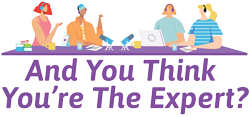Videos & Animations
Animation videos
In collaboration with the experts, we created 5 animation videos that share their stories as people with intellectual disabilities. Each story shares a myth about intellectual disability and how it impacts people in their daily lives.
Want to go back to the top?
Videos
Myths
People with intellectual disability experience significant discrimination and stigma in our community. Research tells us that these experiences are one of the drivers of abuse for people who have an intellectual disability.
We all hold assumptions. What kinds of myths might you believe about people with intellectual disability?
Watch this video to hear from our experts about the myths they have encountered and how those myths impact their lives.
Sharing Our Ideas
Many people with intellectual disability find it hard to share their ideas or opinions. They often aren’t encouraged to share. Many of our experts said that they feel that their opinions are not valued, and they don’t feel listened to.
Watch this video to hear from our experts discussing what helped them share their ideas and how it made them feel.
Want to go back to the top?
Identifying Intellectual Disability
Can you always tell that a person has an intellectual disability? The answer is no. Intellectual disability can be invisible – you may not be able to tell straight away if a person has an intellectual disability.
People use all different terms and words to describe ‘intellectual disability’ and often don’t feel comfortable disclosing their disability due to stigma and discrimination.
Watch this video for more information from our experts about how they define their disability and what workers can do to make them feel comfortable to disclose their disability.
Making And You Think You’re The Expert? Podcast
What was making the podcast like? Watch this video to find out how our experts found making the podcast, and what they hope you’ll get from listening to it!
Want to go back to the top?
Contact numbers for support in Australia
If this podcast has upset you in any way, please reach out to get some support.
The numbers in Australia are:
- 1800 Respect – 1800 737 732
The National Sexual Assault, Family & Domestic Violence Counselling Line for any Australian who has experienced, or is at risk of, family and domestic violence and/or sexual assault.
24 hours, 7 days a week. - Lifeline – 13 11 14
A national number which can help put you in contact with a crisis service in your state - Kids Helpline – 1800 55 1800
Telephone, email and web counselling for children and young people. - Relationship Australia – 1300 364 277
Support groups and counselling on relationships. - National Disability Abuse and Neglect Hotline – 1800 880 052
An Australia-wide telephone hotline for reporting abuse and neglect of people with disability
About this project
These resources were developed and published by WWILD SVP ASSOCIATION INC.© in collaboration with 33 women with intellectual disabilities. For more information, see www.wwild.org.au


Contact us
WWILD Sexual Violence Prevention Association Inc.
Phone: (07) 3262 9877
Fax: (07) 3262 9847
Email: info@wwild.org.au
Contact hours:
Monday to Friday | 9am – 5pm
Funding Acknowledgement
The And You Think You’re the Expert? resources were created as part of the Listen Up! Project, which was kindly funded by the Department of Social Services through the Community Led Projects to Prevent Violence Against Women and their Children.

Acknowledgement of Country
We would like to first and foremost acknowledge the traditional owners of the many unceded lands on which we gathered on for this project; the Turrbul and Jagera people of Meanjin (Brisbane), the Yugambeh people of the Gold Coast, the Gubbi Gubbi people of Caboolture, the Darumbal people of Rockhampton, and the Turrbal, Jagera and Yugambeh people of Logan. We would like to pay our respects to their Elders past, present and emerging. It always was and always will be Aboriginal land.
